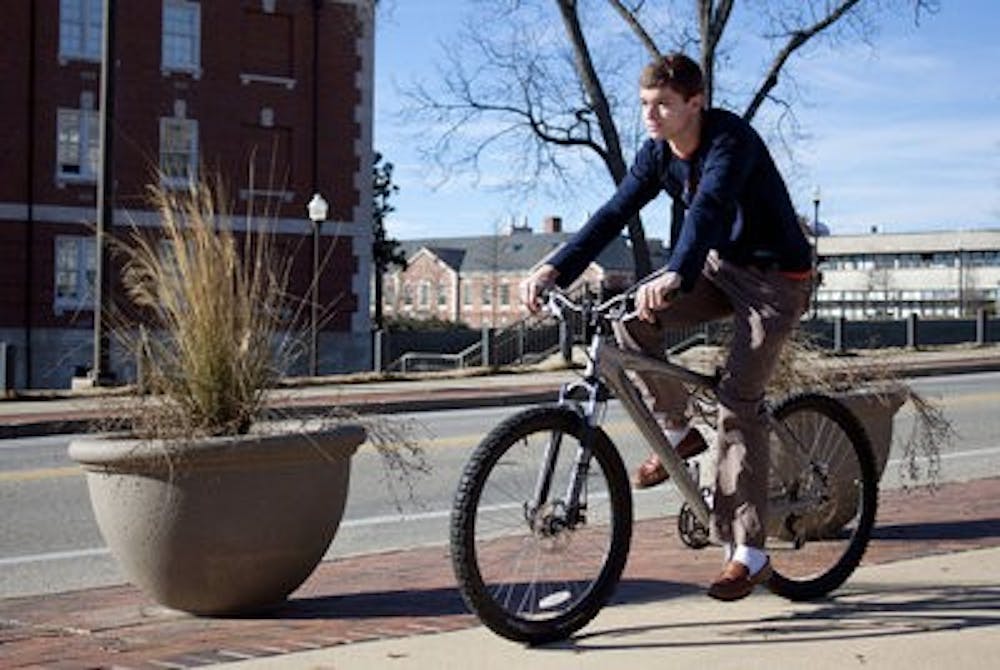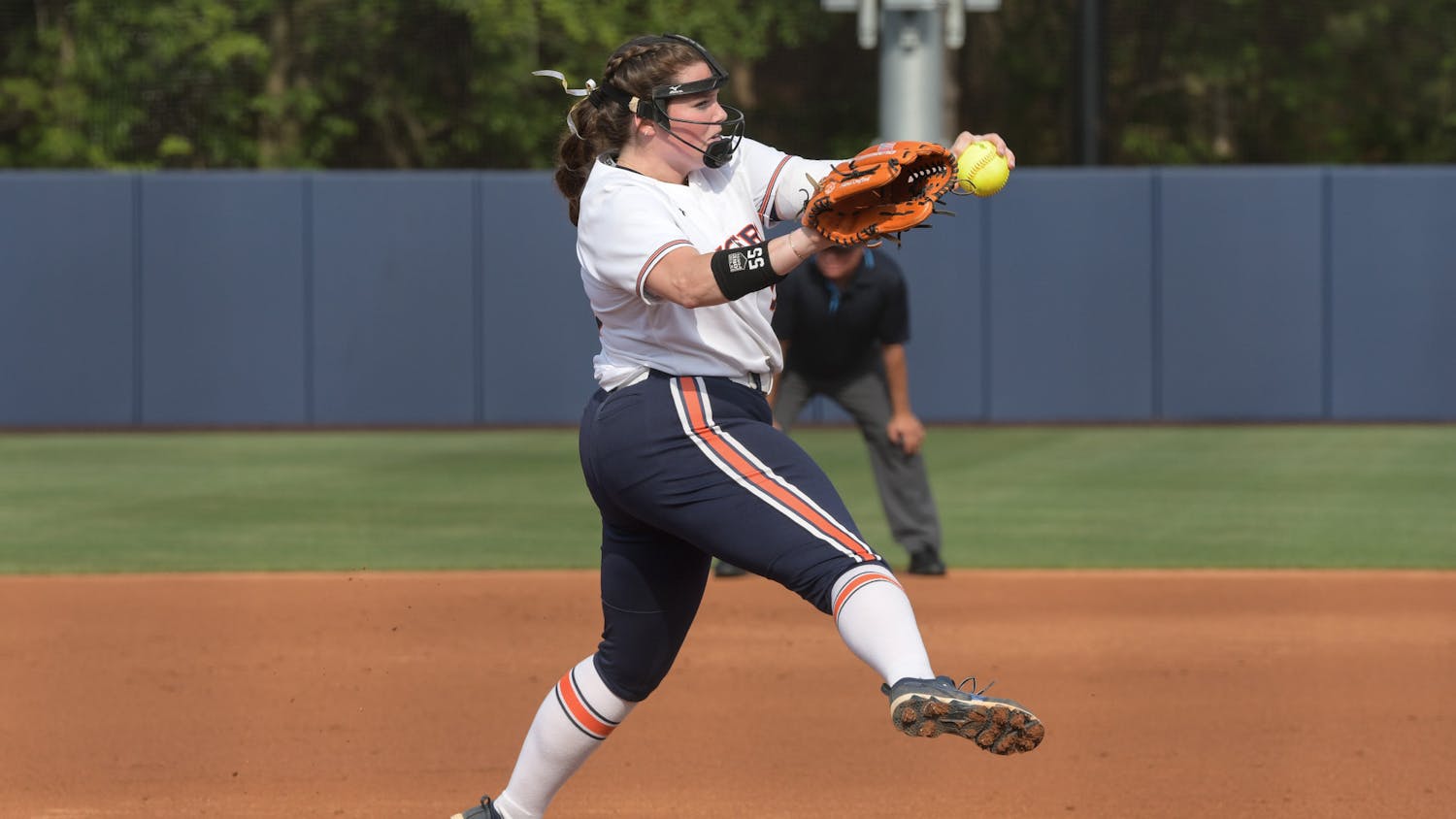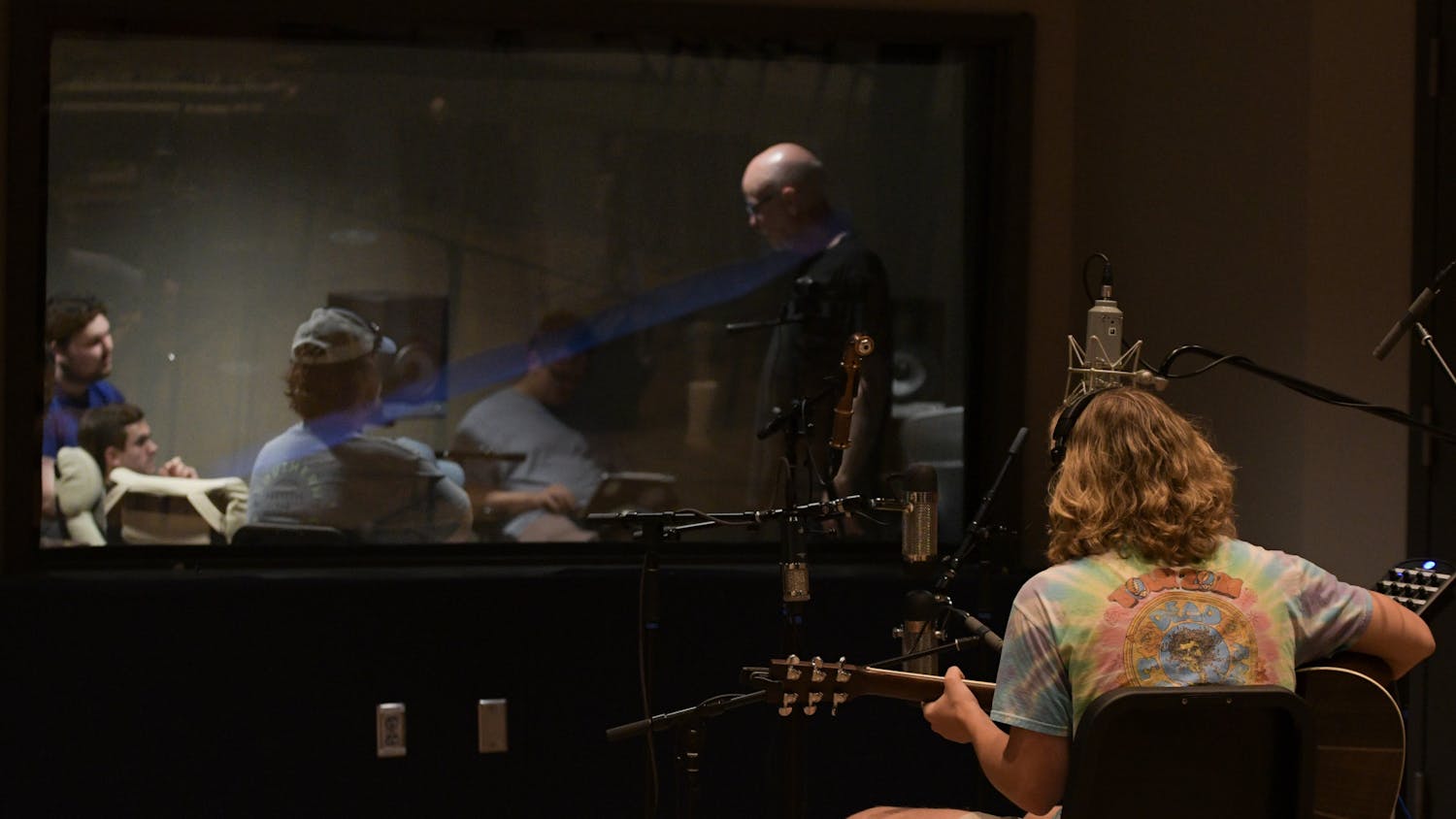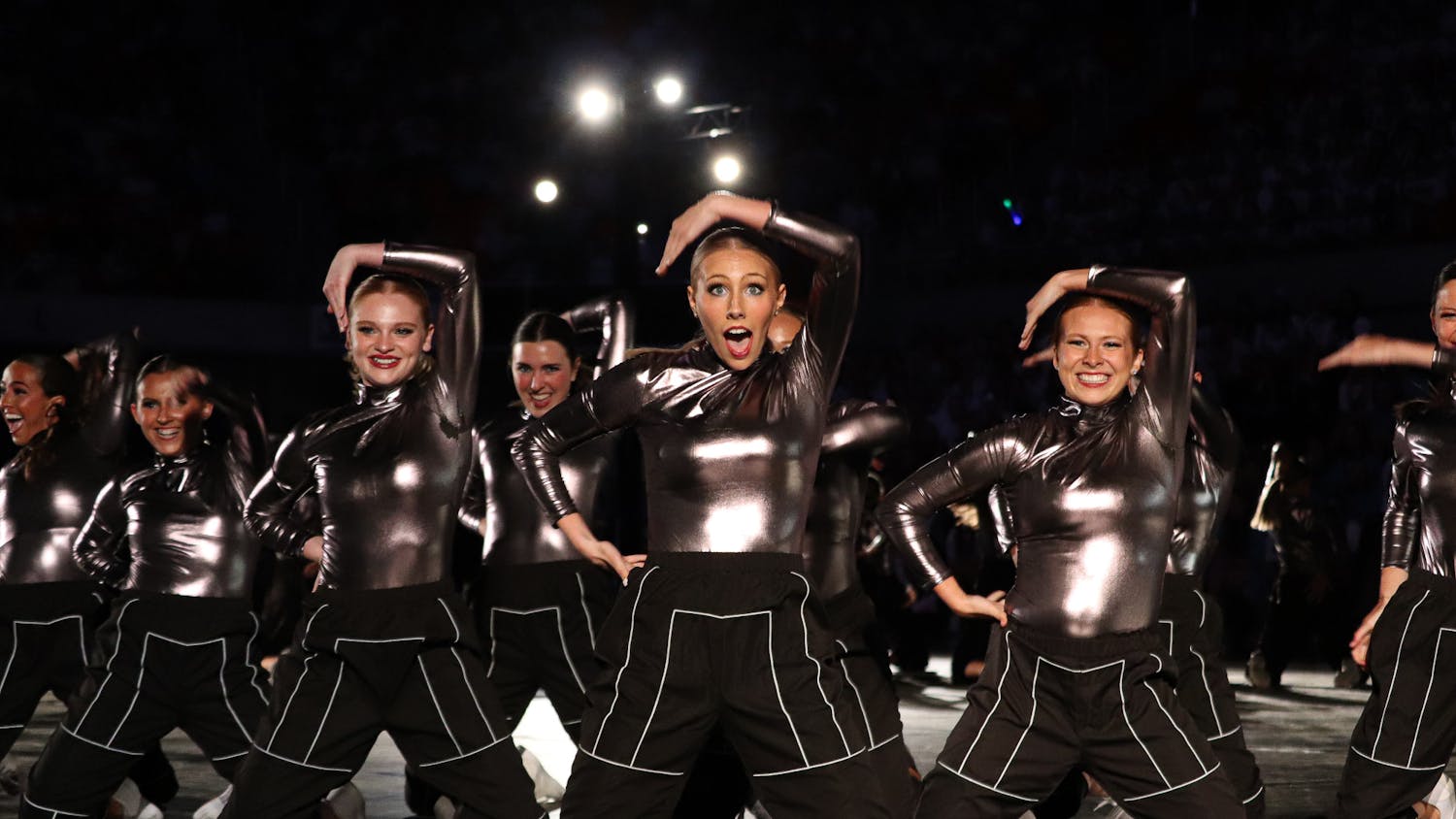Whether it's for commuting, fitness or fun, the number of Auburn residents choosing to ride bikes has increased in recent years, along with the city's response.
"It used to be that most of the bike racks in Auburn were empty," said Lindy Biggs, associate professor of history and director of the Auburn University office of sustainability. "Now most of them are full, and we're having to add more and more every year."
Auburn traffic engineer Brandy Ezelle said the city has noticed this trend and has taken strides toward offering more programs and facilities for bikers, which include more than 35 miles of bike lanes and paths, although many are not contiguous.
"We are continually working on our network," Ezelle said.
As one of the contributions to make Auburn biker friendly, the city began a bike rental program in 2008 that allows residents and visitors to check out bikes and helmets at no charge.
The bikes are loaned out for two-week periods and are able to be renewed.
However, since the program currently has only five bikes to distribute, Ezelle said they have needed to make waiting lists on occasion.
"We think it's been a very successful program from our perspective," Ezelle said. "It's often an expensive purchase for those who are thinking about buying--this way they get to try it out beforehand."
Much of the progress in recent years stems from the "Auburn 2020" plan, which was signed by the Auburn City Council in 1998. In the plan, the city outlined goals for developing many aspects of the community including an extensive bike plan.
Auburn was recognized by the League of American Bicyclists as a bicycle-friendly community in 2005 and is the only city in Alabama to receive this award.
Kirk Iversen, chairman of the Auburn bicycle committee, said the University has also contributed to the city's efforts.
According to Iversen, the University was the driving force behind the addition of bike lanes on Wire Road, which are scheduled to be finished this summer. These lanes will stretch from the intersections at Samford Avenue to Webster Road and will allow the students who live in those areas the opportunity to commute to class.
"We are trying to make every street in Auburn safe to ride on," Iversen said.
Other steps the University will soon take include new racks that will fit all bike models and a rental program for students similar to the one offered by the city.
For residents like Biggs and Iversen who commute to work by bicycle, these improvements offer peace of mind about the safety of riders.
"I wanted to give a message to bike riders that you are as important as a car driver, and we care about you," Biggs said.
With members from both the University and city bike committee working together, Biggs said they are able to develop plans that will benefit the entire community and make it easier for bikers to travel through all parts of town.
One of the items Biggs proposed to the University is a bike shop that would assist students on campus.
"I thought, wouldn't it be nice to have a facility on campus that students, faculty and staff could use to repair bikes and learn about bike repair," Biggs said. "One of the things that's so wonderful about bikes is that they're really simple machines."
While plans to open the shop for this semester have been delayed, Biggs said the University is committed to following through with this idea.
A shop should materialize by the summer or fall semester of this year.
With improvements to encourage more people to ride bikes around the city, there are also problems that arise.
At a recent City Council meeting, council members discussed the possibility of extending the restriction of bike lanes, making them available to bikers all hours of the day.
While the discussion was informal and no decision was made, council members said potential problems would include parking issues on roads with bike lanes, especially in residential areas.
Another problem would be safety for both pedestrians and riders. Students and faculty have voiced this issue at Auburn University, where riders are often careless with their speed and proximity to pedestrians.
"What we really need is bicycle education or etiquette," Biggs said. "It's not fun when you're a pedestrian to have people barrel racing around you."
As a way to increase bike education in Auburn, Iversen said the committee sponsors a bike safety program for fourth graders at Auburn city schools. While this addresses a part of the problem, many residents remain uneducated.
"We need to get everybody on the same page," Iversen said.
No matter the problem, Biggs says the city and University are committed to the principle of sustainability and that ultimately adjustments will be made in time.
"We've got a long way to go," Biggs said, "but we've also come so far."
Do you like this story? The Plainsman doesn't accept money from tuition or student fees, and we don't charge a subscription fee. But you can donate to support The Plainsman.




